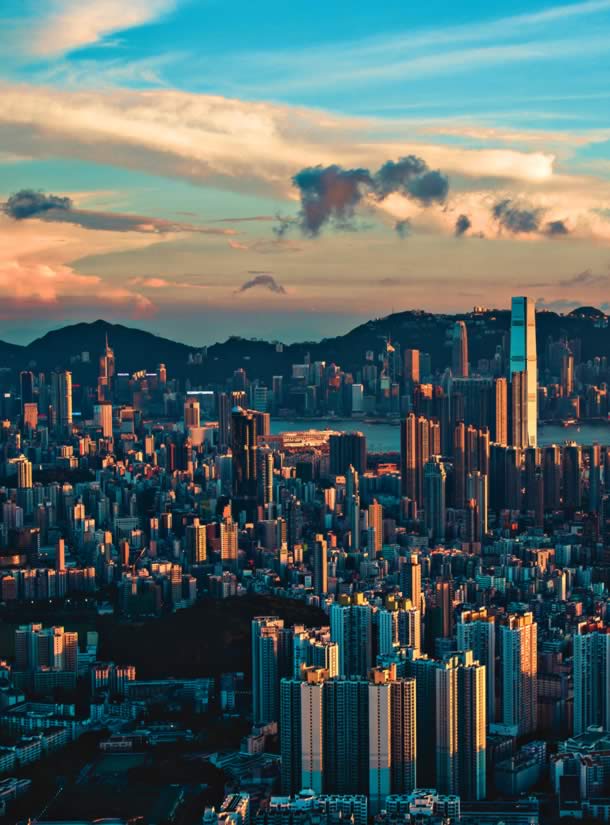Almost any way you look at it, Hong Kong is one of the top cities in the world. It’s ninth on MasterCard Global Destination Cities 2013, ninth on Forbes magazine’s Most Visited Cities in the World for 2013, and the No. 1 city in Bloomberg’s 2012 rankings of Best Places for Business.
With its tall shimmering glass buildings, world-famous restaurants and world-class, deep-water harbor, Hong Kong is a center for international business, finance and fashion.
Hong Kong has come a long way since 1842 when China, out of the ashes of the opium pipes in a defeated empire, ceded it to the British Empire. The British had been exporting opium into China, much as Mexican and South American drug lords are exporting cocaine into the United States. Over the next century and a half, Hong Kong would thrive and rise to its premier status as a world commercial center.
To assess the current climate in Hong Kong, a good place to start is 1997; the year the British turned over its management to the People’s Republic of China, putting one of the stars of international commerce and capitalism into the hands of a communist government. But China by that time wasn’t the nation of Mao’s revolution anymore; it was 21st century China, a nation with a vast land mass and a billion people that was poised to rise to its place as a global power.
Political and business climate
In the 16 years since China reclaimed its brilliant jewel, Hong Kong has maintained significant autonomy, except in areas of foreign relations and politics. The 1984 Sino-British Joint Declaration states that Hong Kong is to retain its way of life, in most dimensions, as a dependent territory for at least 50 years after 1997.
To try to keep the city a thriving international money-making center, China set Hong Kong up as a special administrative region with virtually the same pro-business regulations as pre-1997. Nonetheless, many businesses worried about Chinese rule did leave.
“Many of the traders and business people who were not Chinese, especially Indians with established businesses in Hong Kong, moved to Dubai in 1997 and, in my view, are largely responsible for establishing Dubai as a major trading center in the world today,” said Richard Lindenmuth, managing partner of Verto Partners, a global consulting firm. Lindenmuth is an American businessman who has done business in Hong Kong for more than 20 years.
For those who stayed, free trade, low taxation and minimum government intervention continued. According to The Wall Street Journal and The Heritage Foundation, “Hong Kong has the freest economy in the world.” It is also rated in the top 10 of 185 economies on most topics related to doing business by the Ease of Doing Business website.
Hong Kong is still the gateway to the Chinese mainland, starting with the wealthiest part of China, the land just to the north of Hong Kong known as the Pearl River Delta (PRD): the PRD’s huge manufacturing success has made it a sizeable market.
With China’s meteoric rise as a global commercial power, Shanghai is emerging as the business center in China, and one wonders if Hong Kong will lose its importance. But Lindenmuth believes Hong Kong has a unique position as a city equally comfortable with British as well as Chinese culture. “Shanghai just does not have the ‘neutral’ feel that Hong Kong does,” he said.
Hong Kong is an important travel destination, even if only as a stopover en route to other parts of Asia. Travel agent and consultant Melissa Kulhanjian of Travel Wizards near San Francisco, reports that she sees many travelers visiting Hong Kong as a stopover en route to South Asia with Myanmar being a major draw.
Shopping
Both Hong Kong Island and Kowloon are big commercial centers with plentiful but “very expensive” shopping, said Kulhanjian. To beat the prices, people visit Stanley Market, which Lindenmuth said is “one of the best factory outlet markets in the world,” or they travel to Shenzhen in China for deals.
In the past, Hong Kong was known for custom silk suits and high-quality gemstones from South Asia. With U.S. dollar conversion rates not as favorable as they were historically, the deals aren’t that attractive; and if you’re shopping for gemstones be sure you shop with a reputable jeweler to avoid investing in stones that aren’t real.
Eating
“The range and quantity of available Chinese food is simply unimaginable unless you’ve been there. And, surprisingly, there is a lot of good French food, too,” said Pete Su, a Chinese American raised in Massachusetts and now programming software in Pittsburgh. He has taken his wife on vacation there mainly for the food.
Bryan Law, a Hong Kong born-and-raised Chinese businessman, and managing director of eTrouper Technology Co. Ltd. in China, recommends Tsim Sha Tsui East, extolling “its many harbor-side restaurants and the world longest outdoor escalator from Central to midlevels with many good restaurants and pubs along the way.”
Places to See
There are dozens of lists naming the top 10 sites to visit in Hong Kong if you search the Internet. Here are a few favorites:
“Felix, the restaurant on the top floor of the Peninsula Hotel, is a must-go-to place,” said Kulhanjian. “The food is amazing and the view, dramatic.” The Peninsula Hotel in Kowloon is celebrating its 85th anniversary since its founding in 1928. It has maintained its classic elegance and importance as a gathering place for international businessmen from around the world.
Law recommends taking day trips to the islands from the Outlying Islands Ferry Pier at Central: “Personally, I suggest Lamma Island or Cheung Chau, or Quarry Bay where you can walk around the old streets of Hong Kong, relax at a cafe and have a glimpse of what Hong Kong was like 30 – 40 years ago.”
Hong Kong is glamorous with its beautiful — and expensive — hotels, restaurants and stores. It’s also fascinating and exotic with its unique blend of English and Chinese influences. Be sure to take the Star Ferry and stand on the deck in the breezes in Victoria Harbor, among Chinese junks and large ships. Survey Hong Kong Island to the south and Kowloon and China to the north, and experience Hong Kong’s charm for yourself.








